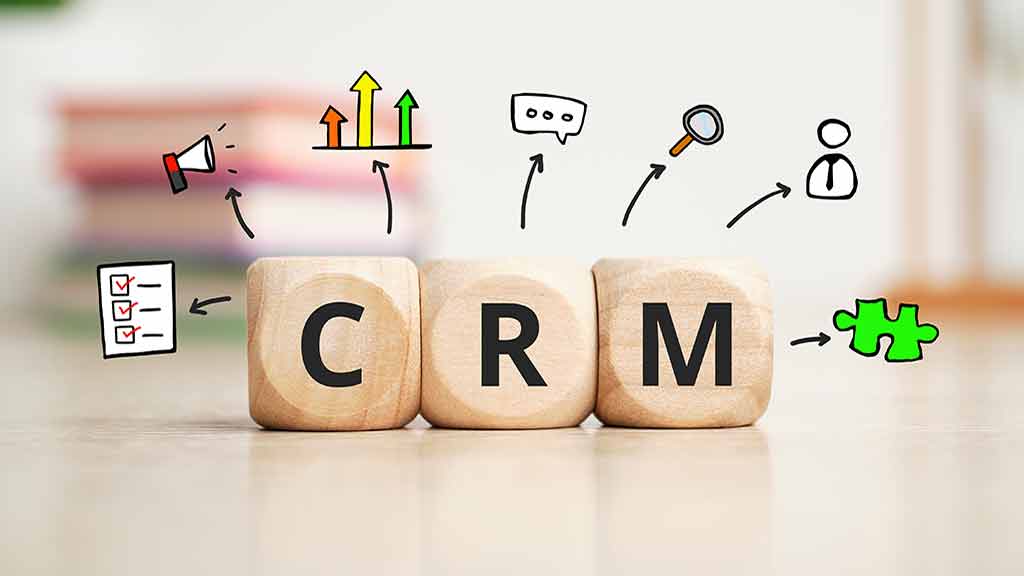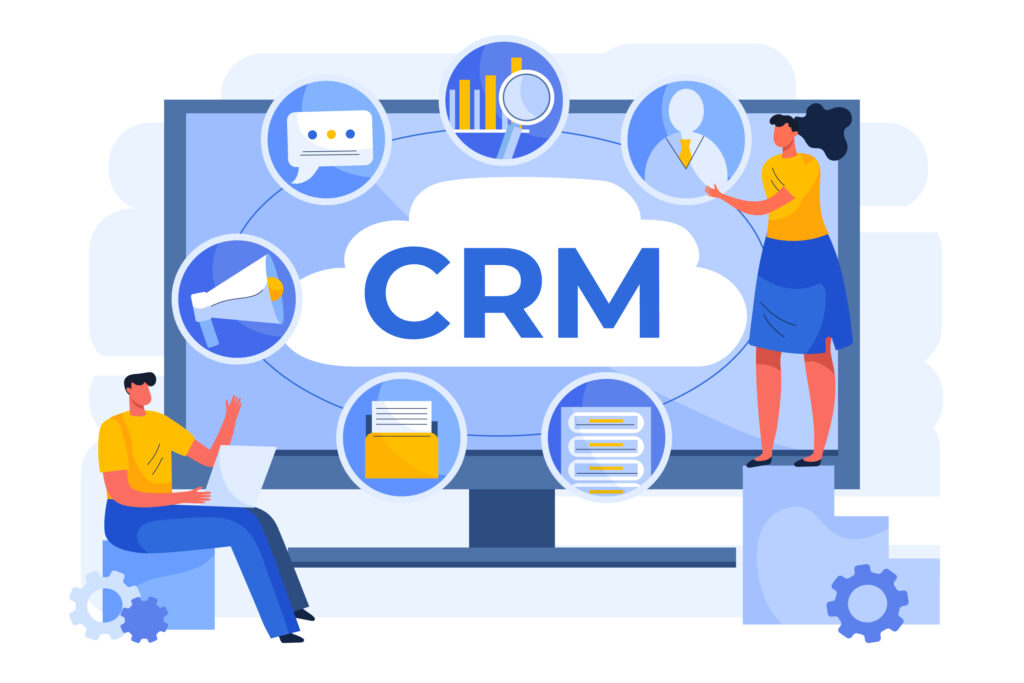
We want to better understand customers’ needs and requirements, performance and behaviours We review and rank leading customer relationship management (CRM) systems to see which ones can best meet your business needs.
While a basic contact-tracking application many suffice for every small business, a comprehensive customer relationship management system can potentially open a new world of sales and support capabilities. A CRM enables an organization to monitor, evaluate, and review the entire lifespan of each customer relationship, form initial purchase to support calls notes from sales representatives and beyond.
Their various and variety of CRM systems are available today in the market, which can quickly put off potential buyers and customers. That’s why we test and rate a wide range of players from across the market to help you in your decision. Most of the options we have reviewed for this roundup are fully featured systems, and some scale to products designed specifically for small business and first. If, on the other hand, you are ready to sue powerful tools for managing your customers’ relations. Check our recommendations and tips to help you navigate the many options.
One prominent trend that has reshaped the CRM landscape is the increasing preference among customers for cloud-based CRM systems. This inclination has made a lasting impression on the sector, as the majority of the CRM systems we’ve recently assessed are exclusively available through cloud-based subscription models. This paradigm, commonly known as Software as a Service (SaaS), offers a host of compelling benefits in contrast to conventional on-premises software solutions.
1. Cost Efficiency: Cloud-based CRM solutions provide a distinct edge for businesses, particularly smaller ones, as they alleviate the initial financial load. This strategy eradicates the necessity for significant outlays in hardware and infrastructure, granting companies the ability to distribute their resources with greater efficiency. Embracing the cloud-based paradigm empowers businesses to tap into robust CRM functionalities without bearing the weight of substantial upfront expenditures, ultimately rendering it a more accessible and budget-friendly option.
2. Scalability: The scalability of cloud-based CRM solutions is a game-changer. Businesses can easily adjust their CRM resources to accommodate growth or fluctuations in customer demand. This flexibility ensures that the CRM system remains an agile tool that can adapt to evolving business needs.
3. Flexibility: Cloud-based CRM systems provide a level of flexibility that is hard to match with on-premises solutions. Users can access the CRM platform from anywhere with an internet connection, enabling remote work and enhancing collaboration among teams. This accessibility is particularly valuable in today’s globalized and remote-friendly business environment.
4. Automatic Updates: Cloud-based CRM vendors often provide automatic updates and maintenance, ensuring that the software is continuously improved without imposing additional burdens on the IT department. This results in a consistently up-to-date and secure CRM system.
5. Integration Capabilities: Many cloud-based CRM systems offer seamless integration with other business tools and software, fostering a cohesive and efficient workflow. This interconnectedness streamlines processes and enhances the overall customer experience.
6. Data Security: Cloud CRM providers typically invest heavily in robust security measures, protecting sensitive customer data against cyber threats. This level of security expertise can be challenging for smaller businesses to replicate on their own.
7. Predictable Costs: With subscription-based pricing models, businesses can predict their CRM expenses more accurately. This predictability aids in budget planning and financial stability.
- Salesforce Sales Cloud Lightning Professional
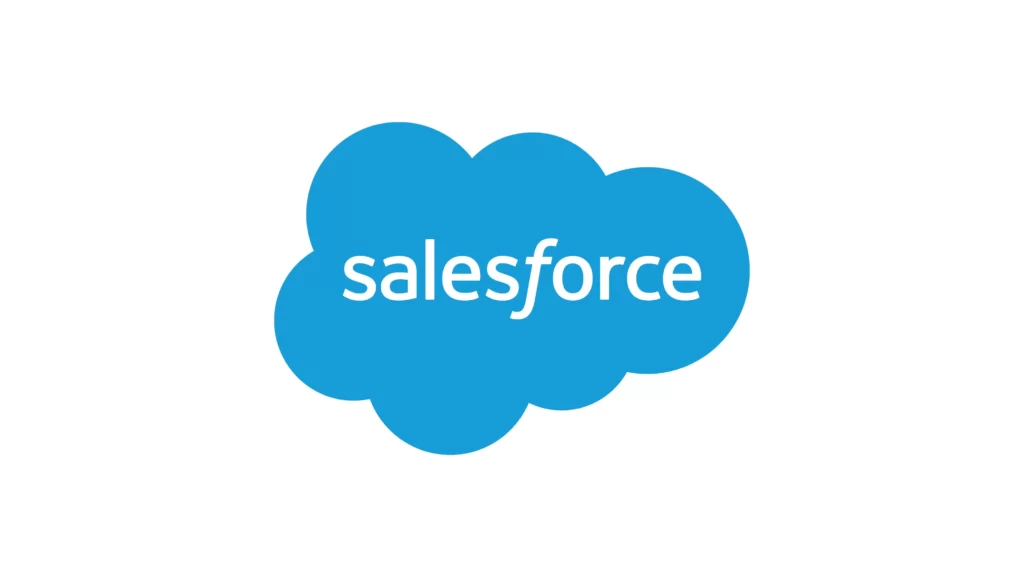
Salesforce is undeniably a pioneer in the world of CRM, setting the standard for the industry and maintaining its leadership position even in the face of competition from newer, more agile rivals. It offers a comprehensive suite of features that can fulfill virtually any CRM need you might have. Additionally, Salesforce’s tiered pricing structure, which includes the accessible Salesforce Essentials offering, makes it an attractive option even for small businesses.
Pros of Salesforce:
- Comprehensive Feature Set: Salesforce offers an extensive array of advanced features and customization options. It can accommodate a broad spectrum of business needs, making it a robust choice for companies with diverse CRM requirements.
- Social Collaboration: Salesforce provides powerful social collaboration tools and integrates seamlessly with third-party applications through its app marketplace. This connectivity enhances communication and collaboration within teams and with customers.
- Efficient Workflows: Salesforce excels in workflow management, streamlining processes and enhancing productivity. It offers the tools needed to automate tasks and optimize business operations.
Cons of Salesforce:
- Learning Curve: Salesforce’s richness in features can result in a steep learning curve, especially for users who are new to the platform. Training and onboarding efforts may be required to maximize its potential.
- Pricing: While Salesforce offers affordability through its entry-level plan, it can become costly as you scale up or require more advanced features. Budget considerations should be a part of your decision-making process.
- Zoho CRM
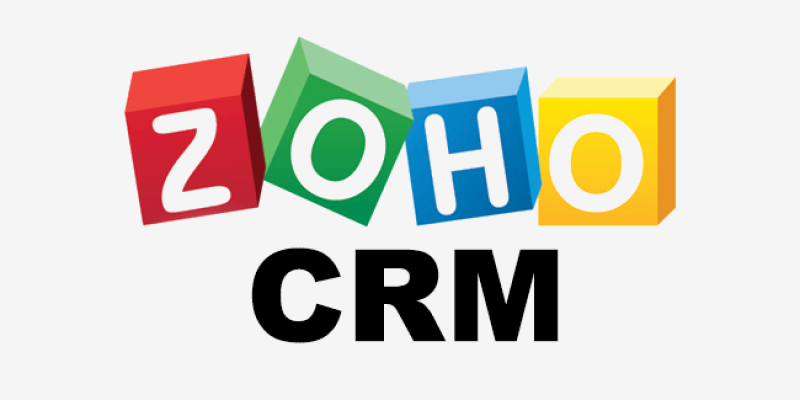
Zoho offers a comprehensive suite of SaaS business software, and its CRM solution stands out as a powerful tool in the market. With a feature set that competes favourably with even industry giant Salesforce, Zoho CRM has recently introduced innovative features like Zia, an AI-driven analytics engine for identifying sales trends and anomalies, and Canvas, a user-friendly drag-and-drop interface editor. What sets Zoho CRM apart is its affordability, making it accessible to smaller teams.
Pros of Zoho CRM:
- Extensive Feature Set: Zoho CRM boasts a comprehensive feature set, covering various aspects of customer relationship management. It competes head-to-head with larger CRM solutions.
- Customizability: Zoho CRM offers high levels of customization, particularly with its Canvas Builder feature. Users can tailor the CRM to their unique business needs and workflows.
- AI-Powered Analytics: The inclusion of Zia, an AI-powered analytics engine, provides valuable insights into sales trends and identifies anomalies, aiding in data-driven decision-making.
- Integrated Gamification: Zoho CRM incorporates gamification features, which can motivate and engage sales teams, driving productivity and performance.
Cons of Zoho CRM:
- Learning Curve: Zoho CRM’s extensive feature set can result in a steep learning curve, especially for new users. Adequate training and onboarding may be necessary to harness its full potential.
- Advanced Features Accessibility: Some of the most advanced features in Zoho CRM may only be available at higher-priced subscription tiers, potentially limiting access for budget-conscious businesses.

bud!
3 HubSpot CRM

HubSpot stands out as a hybrid tool that combines CRM functionality with marketing and help desk capabilities, offering an integrated approach that may be appealing to businesses seeking a unified solution. While its CRM feature set may not match the richness of some standalone offerings, HubSpot excels in rapid implementation, typically getting teams up and running within a couple of weeks.
Pros of HubSpot:
- Robust Feature Set: HubSpot offers a comprehensive set of features, encompassing CRM, marketing, and help desk functionalities. This integrated approach can enhance efficiency and collaboration across teams.
- Generous Free Version: HubSpot provides a free version with essential features, making it accessible to small businesses and startups looking to get started with CRM and marketing without immediate financial commitments.
- Integrated Payment Processing: HubSpot’s support for integrated payment processing streamlines transactions and financial operations within the platform, simplifying e-commerce and sales processes.
Cons of HubSpot:
- Tiered Pricing for Features: Some advanced features and capabilities in HubSpot are only available at higher pricing tiers. This can be a consideration for businesses on a tight budget looking to access specific functionalities.
- Learning Curve for Some Features: While HubSpot aims to be user-friendly, certain features may have a learning curve, especially for users who are new to the platform or require more advanced capabilities.
4 Freshsales
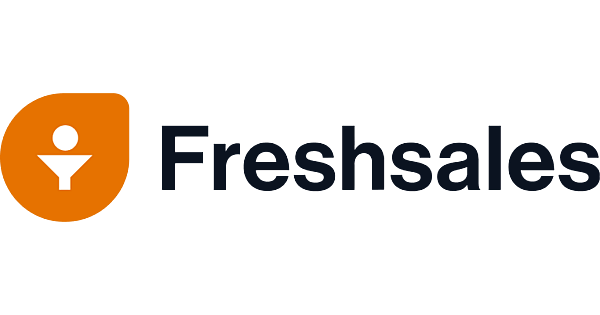
Fresh sales is a dependable entry-level CRM solution that caters well to the needs of most small to midsize businesses. While it may lack some advanced features found in other CRM systems, it has made significant strides in recent times by establishing integrations with various business software, including calendars, email marketing tools, and platforms like DocuSign.
Pros of Fresh sales:
- Streamlined CRM for Small Businesses: Fresh sales simplifies the CRM process, making it accessible and manageable for small businesses. It offers the essential features required for effective customer relationship management without unnecessary complexity.
- Customization Options: Fresh sales provides extensive customization options, allowing businesses to tailor the CRM to their unique needs and workflows. This flexibility ensures that the CRM aligns with specific business requirements.
- Proactive AI Assistant: Fresh sales includes a proactive AI assistant that can assist users in various aspects of their sales activities, such as lead scoring and engagement tracking, enhancing productivity and decision-making.
- Integration Options: Freshsales offers various integrations with other software, expanding its functionality and allowing businesses to connect their CRM with email marketing tools, calendars, and e-signature solutions like DocuSign.
Cons of Fresh sales:
- Limited Reporting in Free Plan: The free plan of Freshsales does not include access to reports, which can be a limitation for businesses looking for data-driven insights without committing to a paid subscription.
- Complex Plan Selection: Choosing the most suitable pricing plan in Freshsales can be time-consuming and may require careful consideration to ensure you get the features you need without overpaying.
5 Zendesk Sell
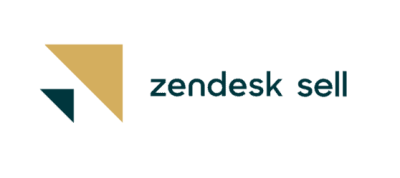
Zendesk, initially known for its help desk software, has expanded its offerings to include a CRM solution. It maintains tight integration with Zendesk for Service, which means its feature set leans more towards help desk functionalities compared to some other CRM systems. Nevertheless, Zendesk CRM is feature-rich and versatile enough to serve as a general-purpose CRM for various organizations.
Pros of Zendesk CRM:
- Integration with Zendesk Help Desk: Zendesk CRM offers excellent integration with Zendesk’s help desk software. This integration streamlines customer support and relationship management, providing a unified platform for handling customer interactions.
- Explorer Feature: Zendesk CRM’s Explorer feature provides valuable reporting options, allowing businesses to gain insights into their customer data and performance metrics.
- User-Friendly Onboarding: Zendesk CRM offers easy onboarding and team-creation features, making it accessible for new users to get started quickly and efficiently.
- Smart Lists: The inclusion of Smart Lists enables users to create dynamic lists of contacts based on specific criteria, facilitating targeted marketing and outreach efforts.
Cons of Zendesk CRM:
- Pricing Tiers: Zendesk CRM can become expensive beyond its lowest pricing tier, which may pose budget constraints for some businesses as they scale up or require more advanced features.
- Limited Pipelines: Even at the highest-priced tiers, Zendesk CRM may offer limited pipeline functionality, which could be a limitation for businesses with complex sales processes.
- Basic Email and Template Editor: The email and template editor in Zendesk CRM may be considered basic compared to more robust alternatives available in other CRM systems.
6 Less Annoying CRM
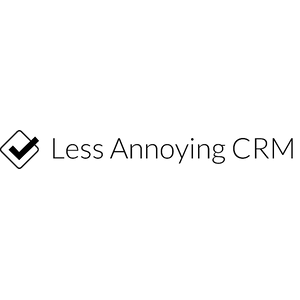
Less Annoying CRM distinguishes itself by prioritizing a user-friendly experience and competitive pricing, making it an attractive choice for small businesses. Despite its affordability, it offers a comprehensive feature set that aligns with the needs of many organizations.
Pros of Less Annoying CRM:
- Redesigned Intuitive Interface: Less Annoying CRM has recently undergone a redesign to enhance its interface, making it more intuitive and user-friendly. This design update improves the overall user experience.
- Help and Support Options: The CRM offers a wide range of help and support options, ensuring that users have access to assistance when needed. This support infrastructure can be valuable for businesses seeking guidance and troubleshooting.
- Mobile Website Implementation: Less Annoying CRM excels in its mobile website implementation, providing users with the flexibility to access CRM features on the go. This mobile-friendly approach enhances productivity and accessibility.
Cons of Less Annoying CRM:
- Learning Curve for Existing Users: Users who were accustomed to the previous interface may experience a learning curve when transitioning to the newly redesigned interface. However, this is generally a short-term adjustment.
- Basic Reporting Features: Less Annoying CRM may have limitations in its reporting capabilities, which could be a drawback for businesses that require advanced and detailed reporting.
7 Creatio CRM

Sales Creatio, previously known by different names, remains a prominent CRM choice with a particular focus on larger sales organizations. It excels in catering to the requirements of these larger teams and offers a versatile platform that extends beyond CRM to encompass business process management (BPM), marketing automation, and help desk functionalities, facilitating a comprehensive and unified approach to various business objectives.
Pros of Sales Creatio:
- Unified Business Solution: Sales Creatio offers a multifaceted and highly customizable unified business solution that encompasses CRM, BPM, marketing automation, and help desk functionalities. This versatility allows organizations to streamline various business processes within a single platform.
- Solid CRM Functionality: Rooted in solid CRM functionality, Sales Creatio excels in helping SMBs streamline processes from lead management to closing deals, enhancing sales efficiency and customer relationship management.
Cons of Sales Creatio:
- Short Trial Period: Sales Creatio’s trial period may be relatively short, which can limit the time available for users to fully explore and evaluate the platform’s capabilities.
- Hefty Feature Set: While Sales Creatio’s extensive feature set is an advantage for businesses with complex needs, it may also be overwhelming for users who require a more straightforward CRM solution.
- Customization Complexity: The initial customization process in Sales Creatio may appear daunting, particularly for users who are new to the platform. However, its low-code development tools offer limitless customization possibilities once mastered.

bud!
8 SugarCRM Sugar Sell
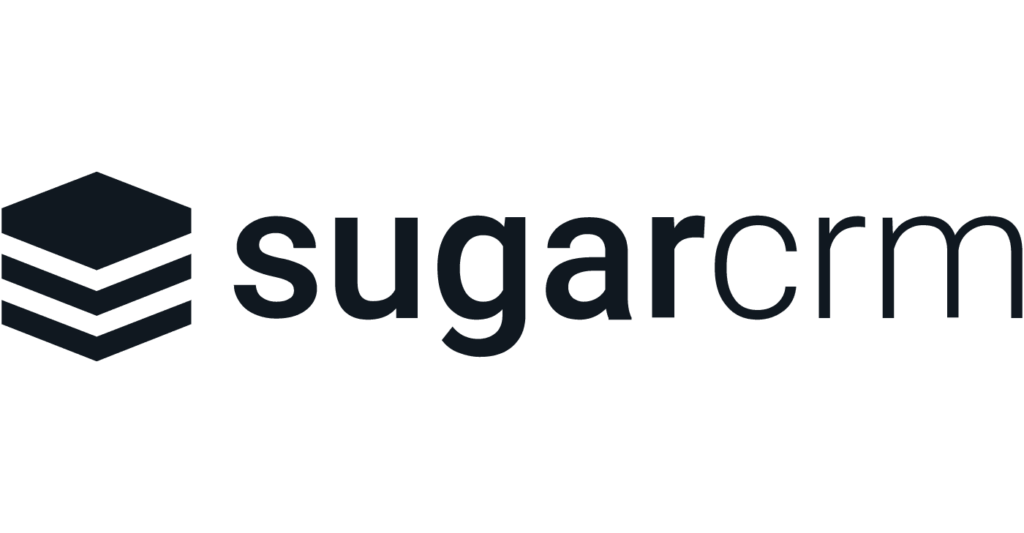
SugarCRM has a noteworthy history as one of the pioneers in the CRM field, originally emerging as an open-source project. Its developer-oriented approach sets it apart, offering extensive customization capabilities, making every module, portal, and report editable. With sufficient effort, SugarCRM allows users to extract maximum value from their CRM solution.
Pros of SugarCRM:
- Extensive Feature Set: SugarCRM provides a comprehensive feature set that includes AI-powered data analysis, useful Dashlet reports, and tight integration with help desk and marketing platforms.
- Customization Tools: SugarCRM’s developer tools for customization are robust, allowing users to tailor the CRM to their precise needs. This flexibility enables organizations to create a CRM solution that aligns perfectly with their unique business processes.
Cons of SugarCRM:
- Learning Curve: SugarCRM’s complexity may result in a significant learning curve, especially for new users. Extensive customization options require a commitment of time and effort to fully harness.
- User Interface: Some users may find SugarCRM’s list-based user interface (UI) to be less modern or intuitive compared to more contemporary CRM systems.
- Cost: SugarCRM can be relatively expensive, particularly at the higher pricing tiers. This cost consideration may affect budget-conscious organisations.
9 Apptivo CRM
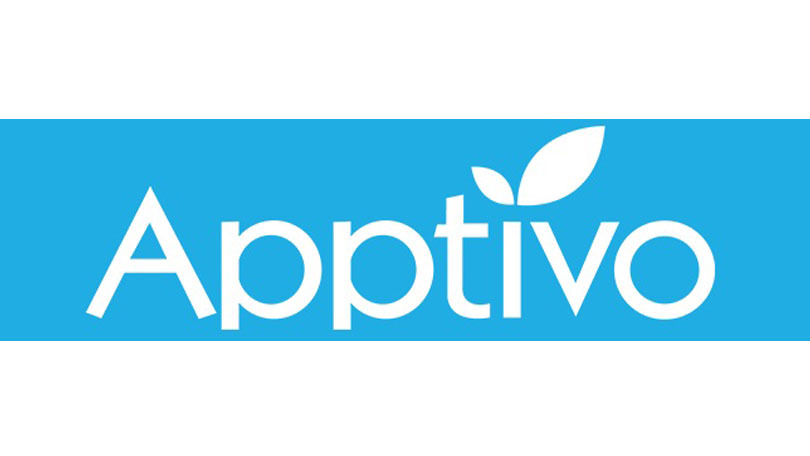
Apptivo CRM stands out as an affordable and highly customizable platform that strives to be an all-in-one solution for various business software needs. Beyond its core CRM functionality, it provides tools for accounting, invoicing, project management, and more. Apptivo is user-friendly and offers support for both Android and iOS mobile devices.
Pros of Apptivo CRM:
- Comprehensive Feature Set: Apptivo CRM offers a comprehensive feature set, including extensive customization options. It provides tools for CRM, accounting, invoicing, project management, and more, making it a versatile choice for businesses.
- Mobile Applications: Apptivo excels in providing outstanding mobile applications for both Android and iOS devices. This mobile support enhances flexibility and accessibility for users on the go.
- Granular Security Controls: Apptivo includes granular security controls, allowing businesses to manage data access and permissions effectively, enhancing data security.
- 24-Hour Support: The availability of 24-hour support ensures that users can access assistance and resolve issues at any time.
Cons of Apptivo CRM:
- Performance: Some users may find that Apptivo’s performance can feel sluggish at times, which can impact the overall user experience.
- APIs: Apptivo could benefit from extended APIs to facilitate smoother integration with a broader range of third-party software, which could enhance its flexibility and utility.
10 Insightly CRM

Insightly offers excellent value in the CRM space, providing ease of use and a user-friendly interface, even though it may not be as feature-rich as some other CRM systems. Data import is seamless, and its AI-powered reporting engine simplifies data analysis. Insightly also offers one-click data export to Microsoft Power BI for enhanced reporting capabilities.
Pros of Insightly:
- Smooth Data Input and Sharing: Insightly excels in data input and sharing, simplifying the process of entering and accessing customer information. This ease of data management enhances productivity.
- Slick Interface: Insightly’s interface is user-friendly and consistent, making it easy for users to pick up and navigate tasks. It prioritizes functionality and simplicity, even if it lacks a visually striking design.
- High Customizability: Insightly offers a high degree of customization, allowing businesses to tailor the CRM to their specific requirements and workflows.
- Integration with Help Desk and Marketing Apps: Insightly seamlessly integrates with its separate help desk and marketing applications, providing a comprehensive suite of tools for customer relationship management.
Cons of Insightly:
- Expensive High-End Tiers: The high-end pricing tiers of Insightly may be costly for some businesses, especially when compared to the competition.
- Lack of Advanced Features: Insightly may lack certain advanced features like custom workflows, which could be a limitation for businesses with complex processes.
11 Pipedrive CRM
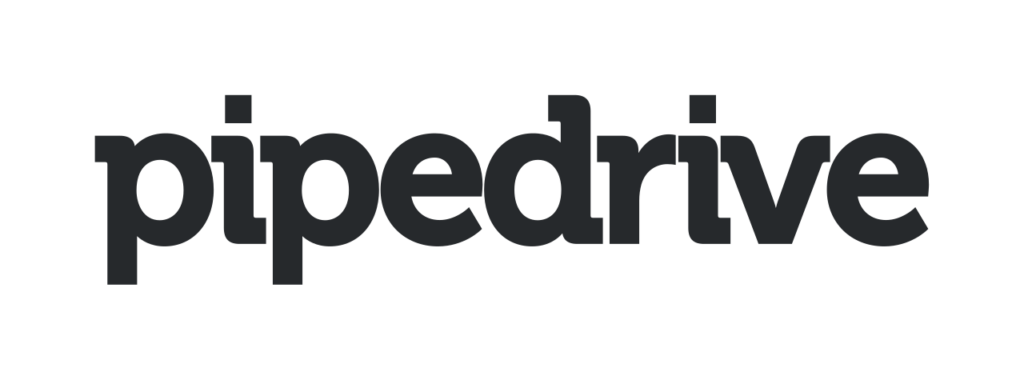
Pipedrive stands out as a deal-driven CRM with several notable features. Its visually appealing UI is user-friendly, and it includes a customizable chatbot for lead generation on company websites. Pipedrive also boasts proactive deal-tracking capabilities that automatically organize calls and emails while synchronizing schedules across multiple devices.
Pros of Pipedrive:
- Intuitive Interface and Deal-Driven Workflow: Pipedrive offers an intuitive interface designed around deal-driven workflows. This design enables sales teams to stay focused on closing deals without unnecessary distractions.
- Solid Mobile Apps: Pipedrive’s mobile apps are well-developed, allowing users to access CRM functionality on the go. Additionally, its call and email synchronization features enhance productivity and communication.
- CRM Process Management: Pipedrive aids small and medium-sized businesses (SMBs) in effectively managing their CRM processes, ensuring that leads and deals are tracked and handled efficiently.
Cons of Pipedrive:
- Limited Functionality for the Price: Some users may find that Pipedrive offers limited functionality relative to its price point, especially when compared to competitors with more comprehensive feature sets.
- No Separation Between Leads and Contacts: Pipedrive lacks a clear separation between lists of new leads and existing contacts, potentially making lead management less structured.
12 Act CRM

Act! CRM, once a leader in contact management software, has evolved into a more comprehensive, cloud-based CRM solution. However, it still bears traces of its legacy with a dated user interface (UI). Act! includes integrated marketing automation features with customizable workflows and offers connectivity with Gmail and Outlook, although the integration may not be seamless.
Pros of Act! CRM:
1. Integrated Email Marketing Features: Act! CRM incorporates email marketing features, enabling businesses to manage email campaigns within the platform.
2. User-Friendly Dashboard Designer: The CRM offers an easy-to-use dashboard designer, allowing users to create custom dashboards tailored to their specific needs.
3. Marketing Automation Workflow Builder: Act! CRM provides a robust marketing automation workflow builder, facilitating the automation of marketing processes.
Cons of Act! CRM:
1. Outdated UI: Act! CRM’s user interface retains an old-fashioned, clunky design that may be challenging for users accustomed to modern SaaS UIs.
2. Email Integration Complexity: Integration with email services like Gmail and Outlook may not be as elegant or straightforward as users would expect from a modern CRM.
3. Data Entry Complexity: Some areas of Act! CRM may have convoluted data entry processes, potentially affecting usability and efficiency.

